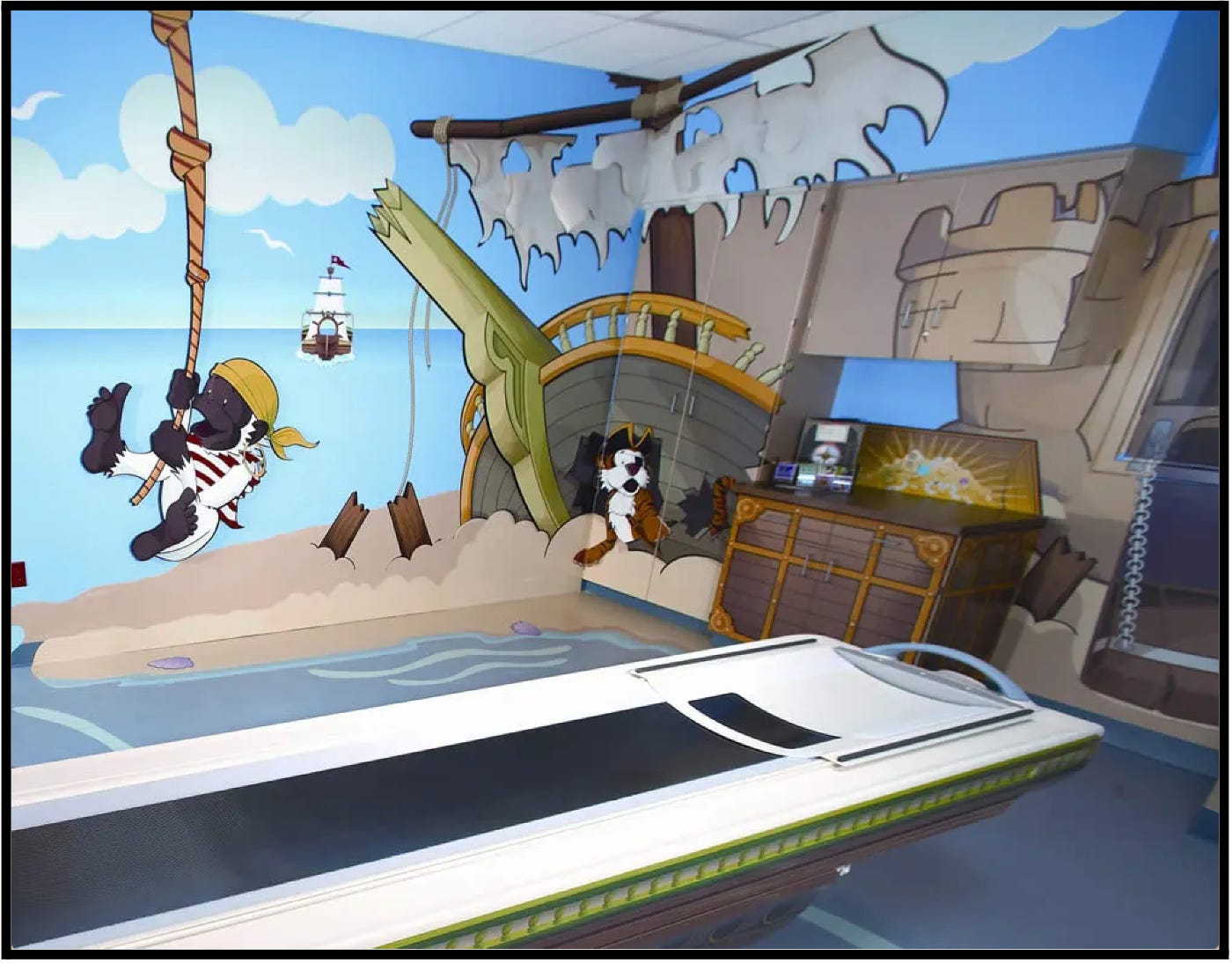To really understand a person
“To pay attention, this is our endless and proper work.”
~ Mary Oliver
Imagine for a moment you’re Doug Dietz.
You design machines for General Electric. You’ve spent the past two years building a new MRI scanner for hospitals, and it’s finally done. You’re thrilled. You go to the hospital to see it and get so excited you do a happy dance. Then you wait to watch the first patients arrive.
A little girl walks down the hallway with her parents. She’s crying. You hear her dad lean down and say, “We’ve talked about this. You can be brave.” You watch as she goes into the room and sees your creation.
She freezes in abject terror.
Suddenly your perspective changes. For the first time, you notice the ominous colors, the scary sounds, the flickering lights, the giant warning sign.
You realize that for two years, you never once looked at your machine through the eyes of a scared child. You now see how intimidating your scanner is for young patients. You’re heartbroken.
What do you do now?
Here’s what Doug did. He assembled a diverse team of experts on children. They reimagined the entire hospital experience from a child’s perspective and created the GE Adventure Series.
Doug and his team transformed the dreadful MRI machine into a fun jungle adventure. Another scanner became a spaceship. They built an underwater submarine. And much more.
The GE Adventure Series has been a triumph nationwide. Participating hospitals find their young patients getting onto the scanner table ten times faster. And the need to give children anti-anxiety medication has plunged.
“You never really understand a person until you consider things from their point of view.”
~ Harper Lee
Doug stumbled upon a fundamental truth: The better we understand how others see things, the more likely we are to connect and create value.
This requires effort.
The head of a fundraising team reached out to me after getting upsetting feedback from a prospective investor: “He told me my pitch was terrible.”
I knew the fundraiser was often successful. I asked what he did differently this time. He said, “nothing!”
And that was the problem. He used an old pitch on a new audience.
We encourage our clients to think through audience profiles before building any presentation. In particular, we want them to answer these three questions:
Who am I talking to?
What are they interested in?
How can I help them?
The philanthropist Russell Conwell perfected the art of audience-focused communication.
Conwell was world-renowned for his Acres of Diamonds speech, which he delivered more than six thousand times across several continents. Yet he never gave the same talk twice. He would arrive early, chat with the locals about town, and then fill his speech with uniquely tailored anecdotes and stories.
You and I have it easier than Conwell.
In How to Use AI to Improve Your Public Speaking, I explain how beneficial ChatGPT and other digital tools can be in helping us build audience-focused presentations. The economist Tyler Cowen, who travels the world giving talks, told me recently that he always consults Chat in advance to get more information on his audience.
The better we understand how others see things, the more likely we are to connect and create value.
Doug Dietz was at Pirate Island.
The smell of pina coladas wafted through the air as a pirate monkey swung from a rope. Once again, he was paying attention to a little girl that came to use his MRI scanner.
He noticed how excited she was to be immersed in a pirate story. She dutifully “walked the plank” and played along as she got her scan done. Afterward, Doug was talking to her parents when the little girl started tugging on her mom’s sleeve.
Her mom looked down and said, “What is it, honey?” The little girl asked with a smile: “Can we come back here tomorrow?”
This time, it was Doug who cried.
His team transformed terror into joy.






